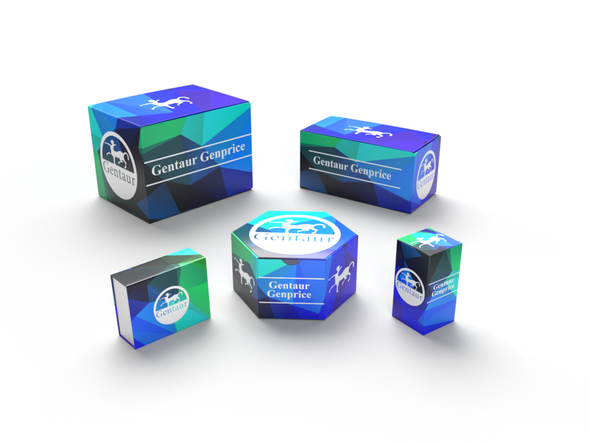Description
DAPP1 Antibody | XW-7853 | Gentaur UK, US & Europe Distribution
Host: Chicken
Reactivity: Human
Homology: N/A
Immunogen: 119-164
Research Area: Other
Tested Application: WB
Application: Dual adapter for phosphotyrosine and 3-phosphotyrosine and 3-phosphoinositide antibody can be used for the detection of Dual adapter for phosphotyrosine and 3-phosphotyrosine and 3-phosphoinositide by Western Blot.
Specificiy: N/A
Positive Control 1: N/A
Positive Control 2: N/A
Positive Control 3: N/A
Positive Control 4: N/A
Positive Control 5: N/A
Positive Control 6: N/A
Molecular Weight: 32.2 kDa (calculated)
Validation: N/A
Isoform: N/A
Purification: Immunoaffinity Purified
Clonality: Polyclonal
Clone: N/A
Isotype: N/A
Conjugate: Unconjugated
Physical State: Liquid
Buffer: Phosphate-Buffered Saline. No preservatives added.
Concentration: 1 mg/mL
Storage Condition: DAPP1 antibody can be stored at 4˚C for short term (weeks) . Long term storage should be at -20˚C. As with all antibodies care should be taken to avoid repeated freeze thaw cycles. Antibodies should not be exposed to prolonged high temperatures.
Alternate Name: BAM32, HSPC066, Dual adapter for phosphotyrosine and 3-phosphotyrosine and 3-phosphoinositide, B lymphocyte adapter protein Bam32, hDAPP1, BAM32, Dual adapter for phosphotyrosine and 3phosphotyrosine and 3phosphoinositide, B cell adapter molecule of 32 kDa
User Note: Optimal dilutions for each application to be determined by the researcher.
BACKGROUND: FUNCTION: May act as a B cell-associated adapter that regulates B cell antigen receptor (BCR) -signaling downstream of PI3K.
SUBUNIT: Interacts with PtdIns (3, 4, 5) P3 and PLCG2. in vitro, interacts with PtdIns (3, 4) P2.
PTM: Phosphorylated on tyrosine residues.
SIMILARITY: Contains 1 SH2 domain.
SUBCELLULAR LOCATION: Cytoplasmic and membrane-associated after cell stimulation leading to its translocation.
TISSUE SPECIFICITY: Highly expressed in placenta and lung, followed by brain, heart, kidney, liver, pancreas and skeletal muscle. Expressed by B lymphocytes, but not T-lymphocytes or nonhematopoietic cells.










